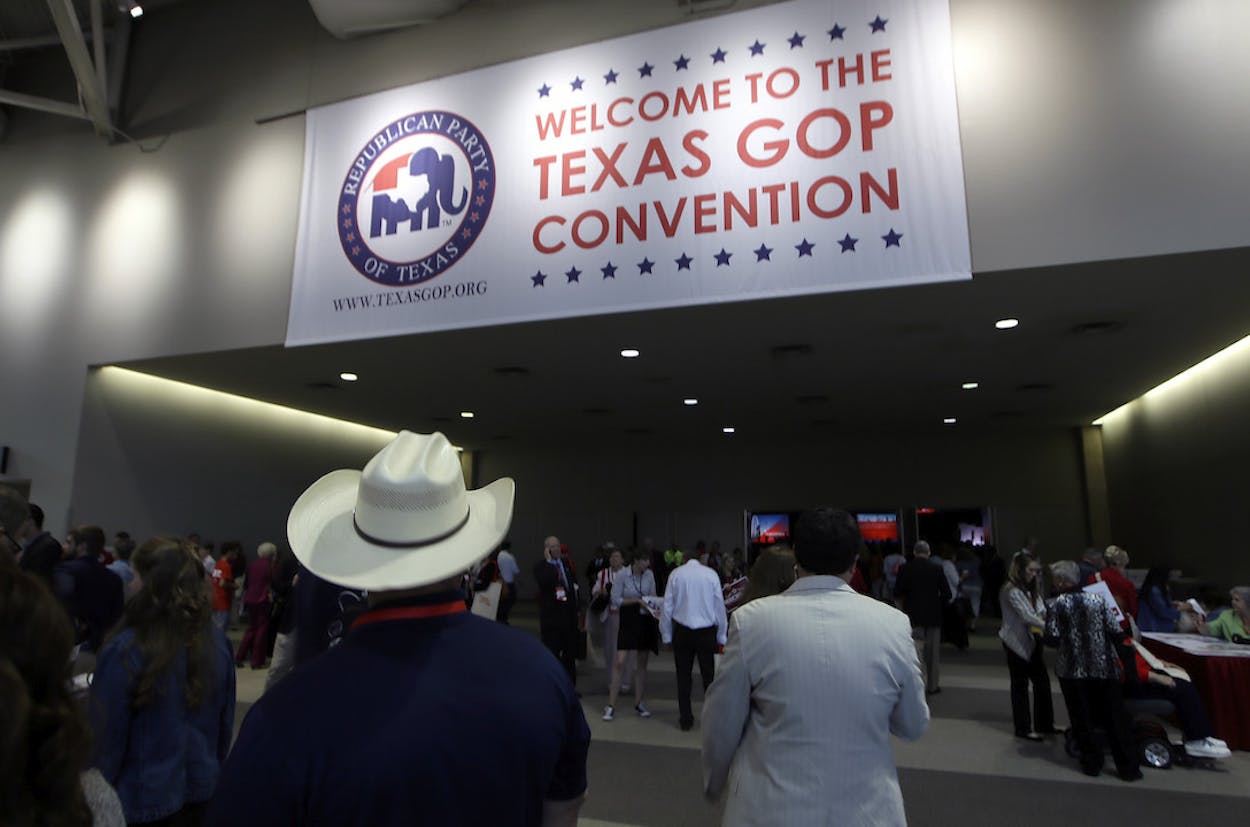The Republican Party of Texas’s annual convention is, under normal circumstances, a reasonably high-spirited affair, festooned with Texas flags and strewn with red-meat speeches about the state GOP’s ongoing war on Washington. This year’s convention, which is underway in Dallas, is a much more morose affair. Among Texas’s most ardent conservatives and committed Republicans there is—to put it mildly—a jarring deficit of enthusiasm for the party’s presidential nominee. Since arriving on Thursday, I’ve met exactly one person who admitted to being a Trump supporter, and one who was curious about him, thought not fully committed. The former was a woman working at the media check-in booth, who told me that she’s sick of how politically correct everyone has become. The latter was an Uber driver from South Africa.
Everyone else I’ve chatted with about the upcoming general election—literally everyone else!—is ambivalent at best. And most of them are not ambivalent about Trump; they’re ambivalent about how to proceed in the wake of his emergence as the party’s presumptive nominee. Those who are committed to the GOP, as elected officials, seem to feel that they should, at least nominally, support his candidacy; the question at hand seems to be whether they can bring themselves to do so.
Those who are emotionally or intellectually invested in the Republican Party of Texas, or the principles it supposedly represents, are grappling with what strikes me as a more painful question. They’re under no direct pressure to support Trump, or even to express a preference for him as an alternative to Hillary Clinton; instead, they have to decide whether they can come to terms with the fact that so many of the leaders they’ve trusted and looked up to, like Greg Abbott, Rick Perry, and Dan Patrick, have decided to do so.
The Texas GOP, in other words, is at a crossroads. In addition to being unsure which direction to head, Texas conservatives are, in a sense, not sure what the available directions are. Many, in both groups, are waiting to see how things shake out, specifically when it comes to Ted Cruz, who will address the convention on Saturday. He has yet to endorse Trump, and I’d be surprised if he does so. The convention’s slogan, “Unite to Win,” is a big ask in this case: Cruz is, as many of his colleagues in the Senate have spent the past several months reminding us, not particularly obedient. And in this case he’s being asked to carry water for someone who’s attacked his wife and breezily accused his father of having played a role in the Kennedy assassination. The more intriguing question is whether Cruz’s silence thus far is a measure of more than his incorrigibility and anger. If he says so explicitly tomorrow, the conservatives currently gathered in Dallas will respond and remember. And they seem like a much better investment, for the 45-year-old Cruz, than the national party leaders who have already made their feelings about him quite clear—or the Republican Party, if Trump succeeds in redefining it with reference to himself.







